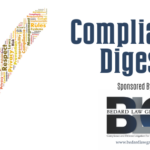Mark Naiman is hoping to ride a wave of optimism during his term as president of the Receivables Management Association (formerly known as DBA International).
Naiman’s goals are to further the association’s certification program, maximize reciprocal partnerships with other trade groups, and make sure that members are looking in their own back yards for supply.
Attendees at RMA’s annual conference last month went back to their offices with a feeling of cautious optimism, Naiman said, the first time that many have had that feeling in years. Expectations of a reduced regulatory burden, an influx of supply, and new markets that are opening up are all reasons for debt buyers to be excited about the future, said Naiman, the CEO of Absolute Resolutions Company.
 “There have been mergers & acquisitions during the past two years; we’re seeing pricing coming down, and midsize banks are coming back to the table and looking at the hard work that has been developed in RFIs and compliance programs and are deploying them quicker,” Naiman said. “There is a tremendous benefit to the buyers to know that not only are there new markets, but new opportunities that have not been available in past five years.”
“There have been mergers & acquisitions during the past two years; we’re seeing pricing coming down, and midsize banks are coming back to the table and looking at the hard work that has been developed in RFIs and compliance programs and are deploying them quicker,” Naiman said. “There is a tremendous benefit to the buyers to know that not only are there new markets, but new opportunities that have not been available in past five years.”
Debt buyers need to be reaching out to organizations like smaller credit unions and buy here, pay here dealerships in their home regions as sources of new supply, Naiman said. RMA has worked hard to promote itself as a funding and liquidity option at other industry events and the fruits of that labor are starting to blossom. But he acknowledged that debt buyers have to go out and take the first step.
“There is only so much we as an association can do,” said Naiman, who took over for Todd Lansky as president of the association. “We can point members in the direction of these types of opportunities. It becomes their own drive that is required for them to be successful. “
One area of the industry that is likely leading to more supply is the greater transparency and the establishment of data standards when it comes to transactions, Naiman said.
“If we had the same level of transparency , and minimum file requirements in areas like data security, if we had that 10 years ago, I don’t believe we’d be under the same scrutiny today,” Naiman said. “It bolsters our credibility and the reputation of those who have moved this program forward during last three or four years.”









